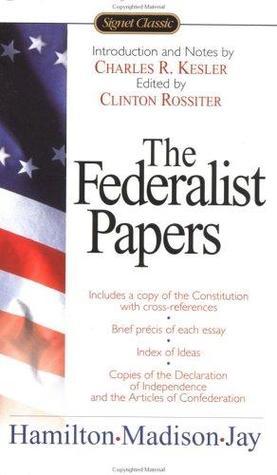What do you think?
Rate this book


Hailed by Thomas Jefferson as “the best commentary on the principles of government which was ever written", The Federalist Papers is a collection of eighty-five essays published by Founding Fathers Alexander Hamilton, James Madison, and John Jay from 1787 to 1788, as a means to persuade the public to ratify the Constitution of the United States.
With nearly two-thirds of the essays written by Hamilton, this enduring classic is perfect for modern audiences passionate about his work or seeking a deeper understanding of one of the most important documents in US history.
688 pages, Paperback
First published May 1, 1788
Why has government been instituted at all? Because the passions of men will not conform to the dictates of reason and justice without restraint.
The circumstances of the body authorized to make the permanent appointments would, of course, have governed the modification of a power which related to the temporary appointments; and as the national Senate is the body whose situation is alone contemplated in the clause upon which the suggestion under examination has been founded, the vacancies to which it alludes can only be deemed to respect those officers in whose appointment that body has a concurrent agency with the President.


